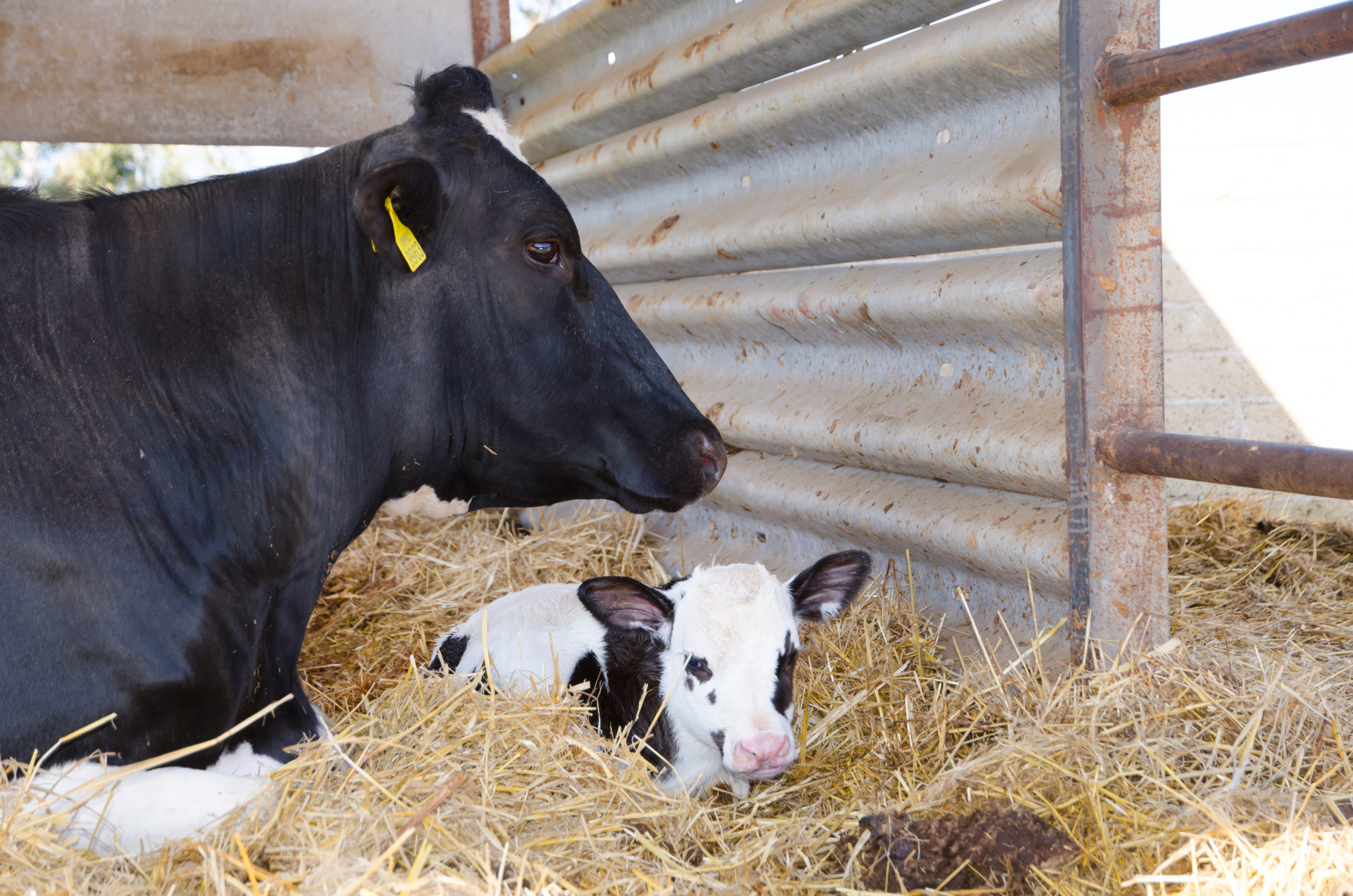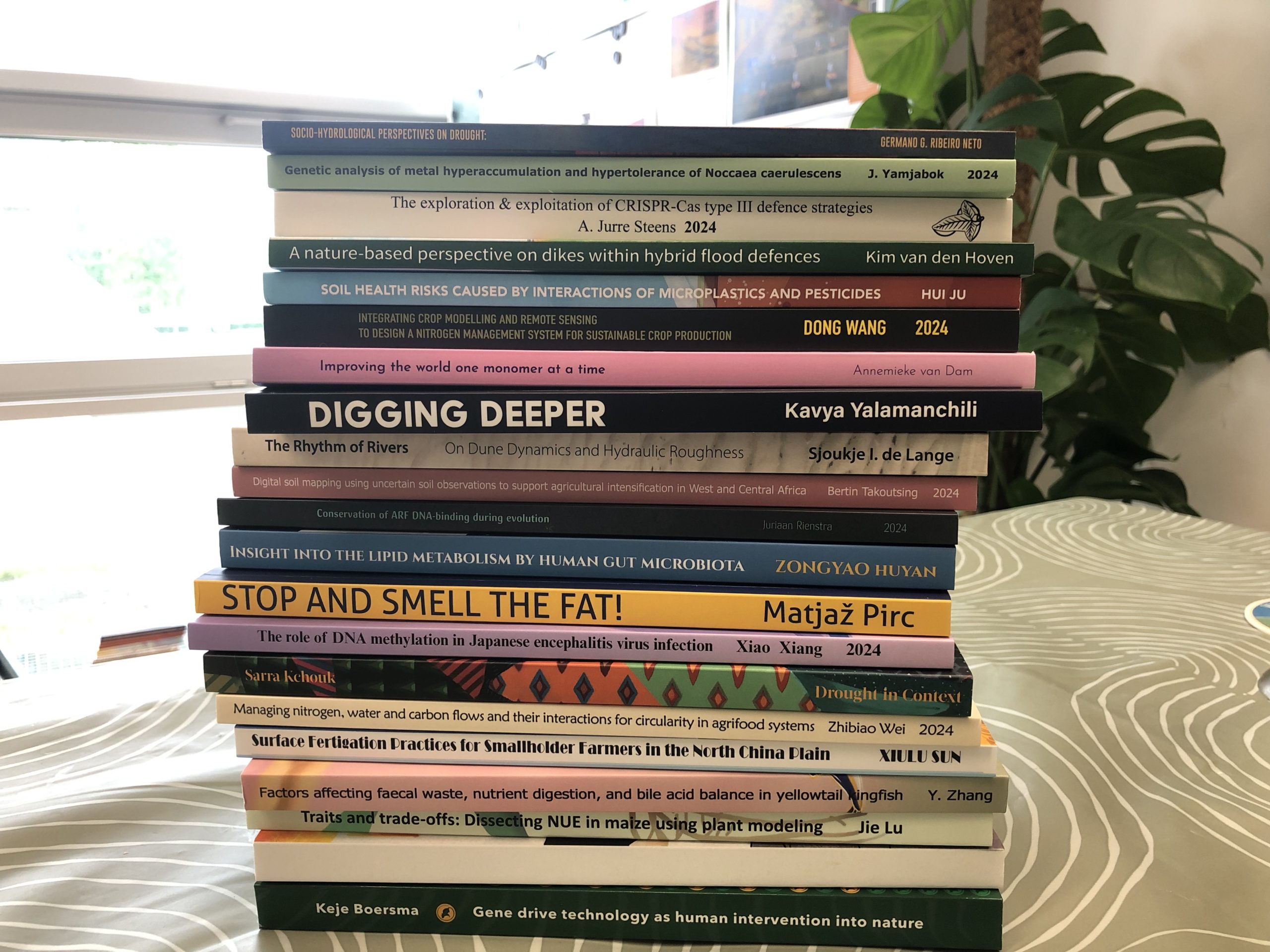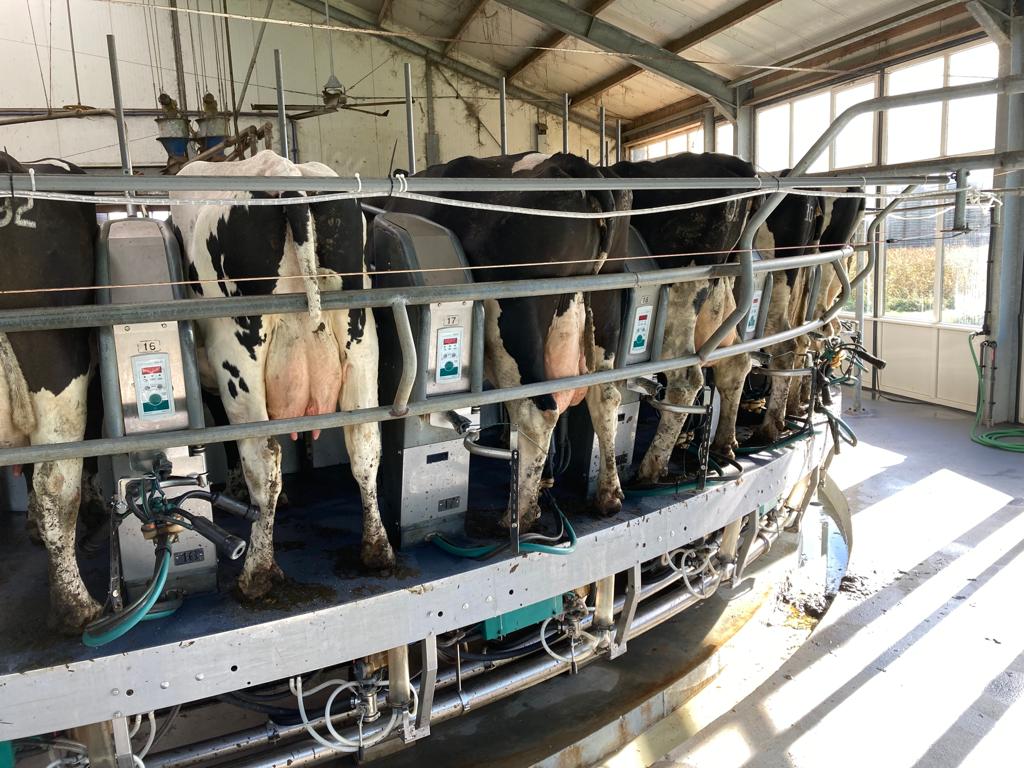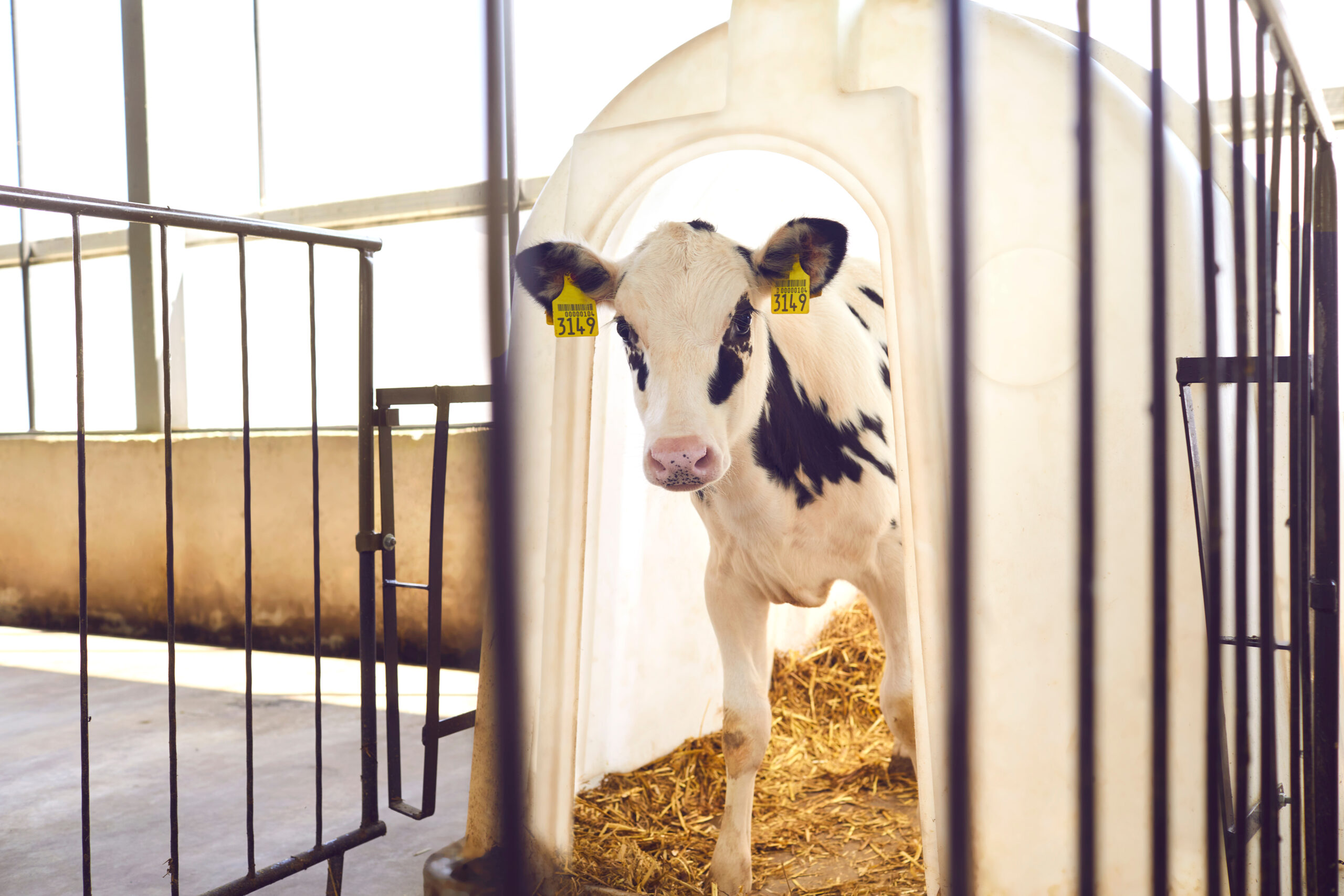Wenker examined three kinds of contact: no contact (separated shortly after birth, which is the norm in dairy farming); full contact (the calf is kept with the cows and suckles the mother); and an intermediary variant where there is interaction but no suckling.
Does contact affect welfare?
‘Behavioural experiments showed that cows value having contact with the calf: they were prepared to push increasingly heavy fences aside to get that contact. There were no negative effects on the cow’s health, although of course the milk yield was less. The fat content of the milk was also lower, probably because the cow makes less oxytocin, a hormone that is thought to influence the amount of fat released.’
Full contact was a mixed blessing for the calf?
‘We did indeed see some negative effects on health, which can mainly be explained by the fact that cowsheds are not geared to housing very young animals at present. However, calves with full contact had a significantly larger daily weight gain and a different microbiome composition in the manure, which influences the immune system. Those factors could be beneficial to health in the longer run.’
So health is not a reason to prevent contact?
‘No. It should really be an argument to see how the barn system can be adapted to allow cow-calf contact without any negative effects for the calf. Animal welfare is not just a matter of health but also of being able to exhibit your natural behaviour. In the past, the animals always had to adapt to the system. If we want livestock farming with respect for the animals, we should be prepared to adapt the system more to suit the animal. Contact between cow and calf can be a significant step towards more animal-friendly livestock farming. Although important prerequisites are financial compensation for the loss of milk and more knowledge about the changes that need to be made to the barn system.’
In the field
On 21 June, nature-inclusive group ‘Caring farmers’ will be launching the project ‘Kalfjes bij de Koe‘, intended to exchange knowledge and experience about cow/calf contact in practice. Wenker is not involved in the initiative, but welcomes it. ‘It is helpful if not every farmer has to reinvent the wheel’.

 ‘Contact can be a significant step towards more animal-friendly livestock farming.’ Foto Shutterstock
‘Contact can be a significant step towards more animal-friendly livestock farming.’ Foto Shutterstock 

